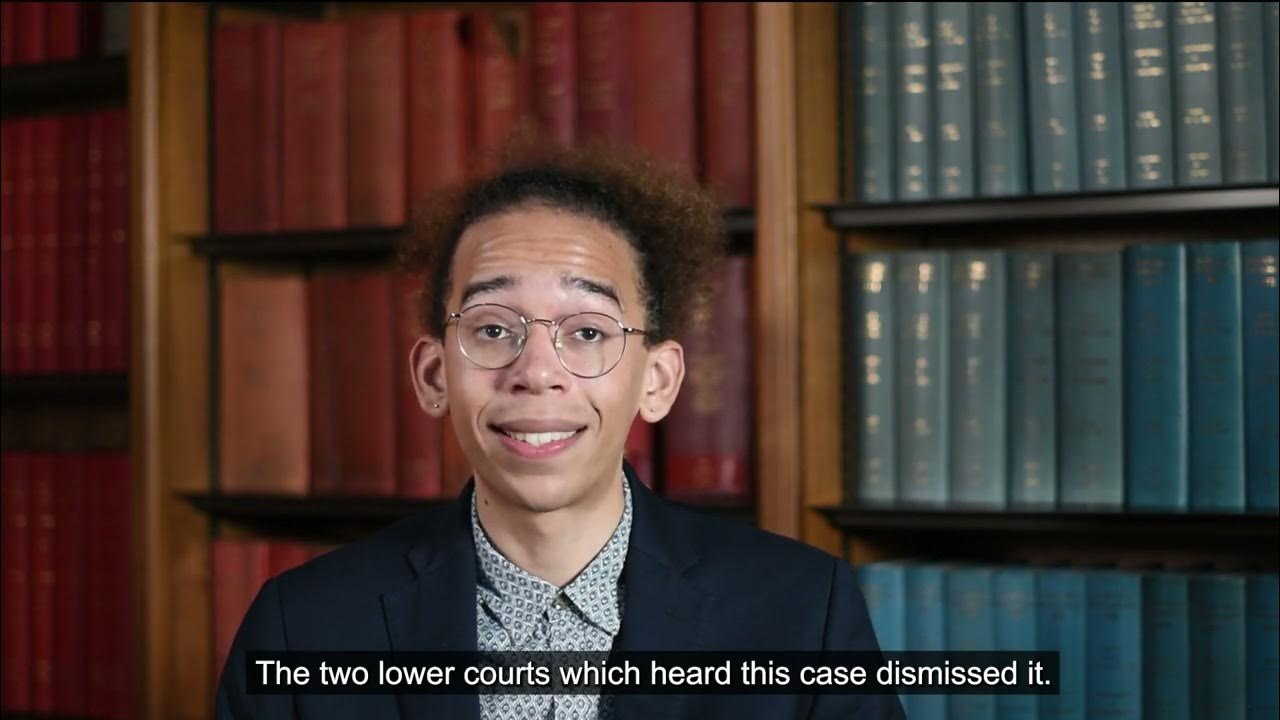Law : The Charter and the Courts intro
Summary
TLDRThis lecture explores the Charter of Rights and the role of courts in shaping law and morality in Canada. It discusses key questions about the nature of law, who should determine it, and how laws reflect societal values. The lecture covers rights versus freedoms, the balance between individual and group rights, and how historical events like Nazi Germany influenced legal thinking. It also touches on Canada's evolving legal landscape, focusing on the protection of minority rights and the ongoing debate over whether the Charter should evolve with modern societal changes.
Takeaways
- 📜 The lecture discusses the history and importance of the Charter of Rights and Freedoms and how it relates to the Canadian legal system.
- 🤔 It poses questions about the universality of laws, the right to ignore disagreeable laws, and the possibility of communities having different civil laws.
- 🏛 The lecture explores who should determine the law, whether it should be representative government, courts, or the general public, and the implications of each.
- 📚 It defines law as a set of rules prescribed by the state or courts, generally instructing what not to do rather than what to do.
- 🏢 The lecture considers the source of law, questioning if it should be top-down from a small group or bottom-up from the people.
- 🗽 It discusses rights and freedoms, emphasizing the need to differentiate between the two, and provides examples of rights in a democracy.
- 🔍 The lecture contrasts Canadian laws with those in the United States, particularly regarding self-defense and the 'stand your ground' laws.
- 🌍 It touches on the concept of freedoms, such as speech, thought, assembly, association, and movement, and the complexities involved.
- 🏛️ The lecture examines the role of morality in law and how it has changed over time, affecting what is considered right or wrong.
- 📊 It provides historical examples of how laws have reflected the morality of the time, including changes in women's rights and minority rights.
- 📈 The lecture concludes by encouraging reflection on whether the Charter of Rights is a static document or one that should evolve with societal changes.
Q & A
What are the fundamental questions about law and society discussed in the lecture?
-The lecture prompts the audience to consider whether everyone should follow the same law, if individuals should be allowed to ignore laws they disagree with, and whether communities should be permitted to follow different laws in civil matters such as marriage and divorce.
What is the definition of law as presented in the lecture?
-Law is defined as a set of rules written by the state or by courts that individuals are prescribed to follow, which are generally negative in nature, instructing what not to do rather than what to do.
Who should determine the law in Canada according to the lecture?
-The lecture discusses various entities that could determine the law in Canada, including the representative government, courts, the Supreme Court, elected leaders in parliament, provincial and federal courts, and the general public.
What is the difference between a right and a freedom as discussed in the lecture?
-A right is something one is entitled to, such as the right to vote or the right to education, whereas freedom refers to the liberty to act or speak without constraint, such as freedom of speech or freedom of movement.
How does the lecture contrast Canadian self-defense laws with those of the United States?
-In Canada, one can defend themselves if under immediate threat but has a duty to retreat if possible. In contrast, the United States' 'stand your ground' laws allow the use of deadly force in self-defense without a duty to retreat, even in public places in some states.
What historical changes in morality and law are highlighted in the lecture?
-The lecture highlights changes such as the criminalization of abduction of women in 1909, equal grounds for divorce in 1925, and the inclusion of women in Canada's Olympic team in 1928, reflecting a shift in societal views on gender and rights.
What role did Bertha Wilson play in Canadian legal history as mentioned in the lecture?
-Bertha Wilson was the first woman justice of the Supreme Court of Canada, who wrote a majority judgment that struck down Canada's restrictive abortion law, significantly impacting women's rights in the country.
How does the lecture describe the purpose of the Charter of Rights?
-The Charter of Rights is designed to protect individual rights, minority rights, and community rights, particularly from the state. It reflects the societal values and the push for rights protection during the 1960s and 1970s.
What is the significance of the year 1982 in the context of the lecture?
-1982 is significant as it is the year the Charter of Rights was written, reflecting the societal feelings and the need for rights protection at that time.
What challenges does the lecture suggest the Charter of Rights faces in the modern age?
-The lecture suggests that the Charter of Rights must contend with modern issues such as freedom of speech on the internet, which is global, and the concept of freedom of movement in an interconnected world.
How does the lecture encourage the audience to think about democracy and rights?
-The lecture encourages the audience to consider whether democracy can infringe upon rights, the implications of having the right to vote, and the rarity of female prime ministers in Canada, prompting reflection on gender equality and political representation.
Outlines

このセクションは有料ユーザー限定です。 アクセスするには、アップグレードをお願いします。
今すぐアップグレードMindmap

このセクションは有料ユーザー限定です。 アクセスするには、アップグレードをお願いします。
今すぐアップグレードKeywords

このセクションは有料ユーザー限定です。 アクセスするには、アップグレードをお願いします。
今すぐアップグレードHighlights

このセクションは有料ユーザー限定です。 アクセスするには、アップグレードをお願いします。
今すぐアップグレードTranscripts

このセクションは有料ユーザー限定です。 アクセスするには、アップグレードをお願いします。
今すぐアップグレード5.0 / 5 (0 votes)






